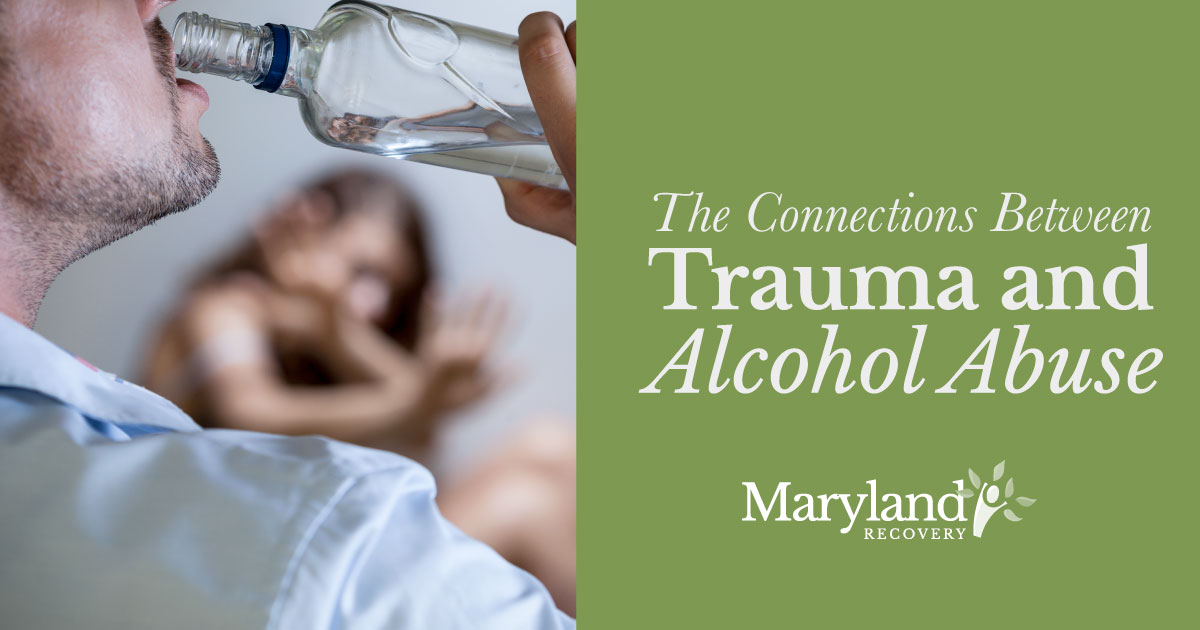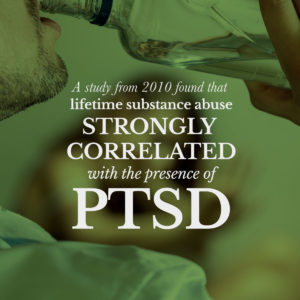 Substance use often creates a distorted sense of wellness, ease, comfort, and lowered inhibition. Alcohol, in particular, behaves similarly to Oxytocin in the brain and can make users feel confident and happy for a short while. For trauma sufferers, the need to experience an escape from the pain and suffering of memories can easily turn into alcohol abuse and addiction. Self-medication is a slippery slope that cannot resolve the experience of life after trauma.
Substance use often creates a distorted sense of wellness, ease, comfort, and lowered inhibition. Alcohol, in particular, behaves similarly to Oxytocin in the brain and can make users feel confident and happy for a short while. For trauma sufferers, the need to experience an escape from the pain and suffering of memories can easily turn into alcohol abuse and addiction. Self-medication is a slippery slope that cannot resolve the experience of life after trauma.
What Is Trauma?
Psychological trauma is the emotional response to a distressing event. It interrupts a person’s normal coping ability and delays the processing response that allows individuals to move forward. Shock, denial, anxiety and nausea often accompany an individual’s inability to cope. Anyone can experience trauma under the right conditions. Normally, people start to recover from the event within six months and the traumatic response symptoms start to fade as individuals work through their emotions.
If the strong visceral reactions to an event last long term and interfere with a person’s life, he or she may develop post-traumatic stress disorder (PTSD). Those who suffer from PTSD often experience stress, fear, and anxiety in non-threatening situations long after a traumatic event passes. In severe cases, they may develop nightmares, debilitating flashbacks, or hallucinations.
 According to the National Institute of Mental Health, individuals may receive a PTSD diagnosis if they experience certain symptoms for at least a month, including:
According to the National Institute of Mental Health, individuals may receive a PTSD diagnosis if they experience certain symptoms for at least a month, including:
- A minimum of one symptom involving reliving the traumatic event.
- A minimum of one instance of avoidance.
- At a minimum of two significant reaction symptoms.
- A minimum of two mood and/or cognitive functioning symptoms.
After a traumatic event, those significantly affected may put off seeking help. Some will avoid counseling because of the associated stigma, while others experience a level of denial. Some experience symptoms so intense they don’t know when or how to reach out for help. Instead, many turn to easily accessible coping mechanisms.
Healthy coping mechanisms including social support, exercise, meditation, and spending time with animals can alleviate the symptoms of PTSD and normal emotional trauma. Unhealthy coping mechanisms occur when those who struggle turn to food, alcohol, or drugs to escape from their emotions. These unhealthy self-medicating approaches mask the underlying problems and may worsen the symptoms of trauma and PTSD.
What Causes Psychological Trauma?
Trauma can occur at any point in an individual’s life. Every person has a threshold for traumatic events. For some, a serious car accident may cause long-term fears, anxiety, and distrust associated with vehicles and driving. For others, childhood traumas including bullying, molestation, and loss of a close friend or family member may cause long-term problems. Those who grew up with an alcoholic parent may experience trauma associated.
Some people experience trauma and PTSD as the result of experiences that other people easily move past. A sensitive person may internalize and struggle with severe criticism, tease, or manipulative behaviors and develop traumatic responses to these emotional triggers. From childhood bullying to war, the causes of psychological trauma vary from person to person. Every trauma response is valid and deserves support and understanding as an individual learns how to process emotions and grow stronger.
Understanding the Trauma/Alcohol Connection
According to a compilation of studies published in “Alcohol and Alcoholism,” researchers explored the connection between childhood trauma and the risk of alcohol abuse. The study showed a positive correlation among childhood traumatic events, affective symptoms including anxiety and alcoholism. The dated study published in 2004 is one of many later studies that support the same theory.
A study from 2010 found that lifetime substance abuse strongly correlated with the presence of PTSD. Around 40% of the participants developed a long-term alcohol dependence. This study went one step further and determined a relationship between the level of abuse a person experienced and the severity of a substance abuse problem. Another study published in 2013 in Alcoholism: Clinical and Experimental Research came to the same conclusion.
In many ways, the trauma and alcohol connection is a two-way street. Trauma increases the risk of alcohol abuse and alcohol use increases the risk that someone will experience a traumatic event. Each drink lowers inhibitions further and impairs the senses to increase the likelihood a person will engage in risky behaviors. This complex relationship can tear lives apart without ever resolving underlying problems.
For people with co-occurring substance abuse and mental health disorders, professional support may provide the best or only path to long-term recovery. Knowing when to seek help is the first step.
Identifying Warning Signs of Trauma-Related Alcohol Abuse
Anyone struggling to cope with a recent or past trauma faces an increased risk for alcohol abuse. Even those who drank moderately before a trauma may develop addictive patterns after an emotional event. Signs of trauma-related alcohol abuse may include severe mood swings while drinking, the sudden constant desire to escape from life, an increased tolerance after a struggle with trauma, and drinking alone to silence negative thoughts.
Reaching out for Substance Abuse and Mental Health Support in Maryland
Reaching out for help is not a sign of weakness. It is a sign of strength often crucial to overcoming past trauma. At Maryland Recovery, we offer effective and scientifically supported alcohol treatment programs. Our dual diagnosis services specifically support those struggling with co-occurring substance abuse and mental health difficulties.
Alcohol recovery requires discipline and motivation. Often those who struggle with trauma need a push to find purpose in life and the will to move forward, get sober, and process difficult emotions. Allow the long-term sobriety-focused programs at Maryland Recovery to give you or your loved one the tools needed to succeed. In treating the root causes of trauma/PTSD and alcohol abuse, we empower patients to regain control over life.
Trauma Plays a Major Role in Those with Substance Abuse and Alcohol Use Disorders, However, It Can Be Treated Alongside Addiction with Dual Diagnosis Treatment:
Dual Diagnosis Treatment for Trauma
Reviewed by Christopher Schwartfigure MS, LGPC, CAC-AD








